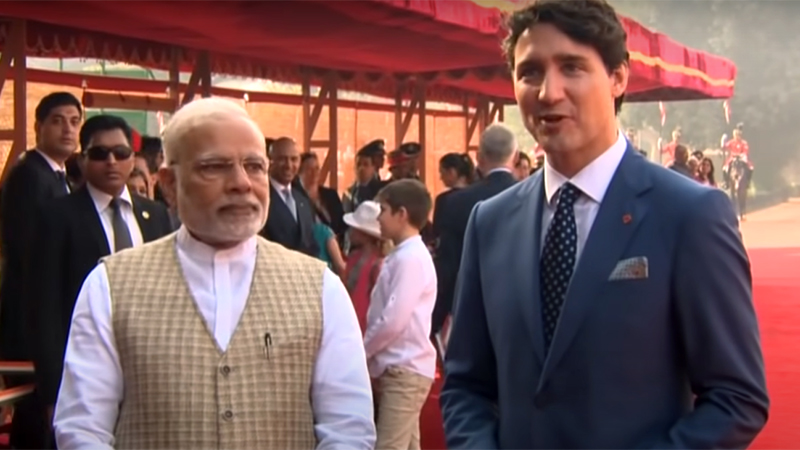The recent nose-diving of the India-Canada relationship is likely to have significant repercussions on the world stage. It all started with Canadian Prime Minister Justin Trudeau alleging that India and its agents were behind the killing of a Canadian, Hardeep Singh Nijjar, a Khalistani separatist on Canadian soil on June 18. India denied the allegations and instead pointed out that despite its repeated assertions, Canada has not acted against the terrorist Khalistani elements operating out of the country.
The finger-pointing continues and both sides seem in no mood to give in. What has happened as a consequence is that the bogey of Khalistan has once again come to dominate the Indian political narrative. Khalistan is a demand for a separate homeland for the Sikhs, a movement that peaked in the seventies and eighties, but has few takers in India today. The Sikh diaspora, especially in Canada, is most vociferous in its demands for Khalistan. What makes the picture complicated is that the Sikh diaspora living in Canada is still tied to the state of Punjab via relationships and emotions.
According to the last Indian census held in 2011, there are about 20.8 million Sikhs, making up 1.7 percent of the country’s population. The majority of them live in the state of Punjab from where immigration has been rapid to countries like Canada, Australia and the UK.
There are essentially two facets to this situation; one internal and another external. Internally, this has become a volatile political issue, and with the general elections scheduled for 2024, this gets tied in a nasty way to nationalism and rooting out extremist elements in India. The problem is that the entire Sikh community tends to get painted in Khalistan colours and that is deeply problematic for a ‘secular’ country.
Externally, it makes things harder for India on the international stage. India has just concluded a highly successful G20 Summit; it is projecting itself as the voice of the Global South; many view India and its democratic structures as the perfect balance to a China that is autocratic and has scant respect for human rights. Canada is a key US ally and it has the support of many in the Western world.
Further, the fact that “shared intelligence among Five Eyes partners” informed Canada of the possible involvement of Indian State agents in the killing of Nijjar has complicated matters further. The ‘Five Eyes’ intelligence-sharing alliance includes Australia, Canada, New Zealand, the United Kingdom and the United States.
The US, in various statements, has said that it would urge India to cooperate with Canada in the investigations. It is also believed that the US worked closely with Canada to gather the intelligence behind the Nijjar killing. It is important to note here that today India is a close partner to the US in many endeavours and the Nijjar episode raises some uncomfortable questions.
There can be no denying that to some extent this issue is being politicised both in India and Canada. In India, it plays to the strength of the government and hence the ruling party that it will deal with extremists with an iron hand. Social media saw many erupting in joy that India has now successfully eliminated its enemies on foreign soil and how this showcases the prowess of a new, emerging and powerful India.
In Canada, the Trudeau government is also playing to its voter base. It’s no hidden fact that Trudeau needs the support of Jagmeet Singh, whose party has lent support to Trudeau in government formation, and who is a staunch Khalistani supporter. So, in that sense the story is probably similar in India and Canada: domestic politics is playing a major role in the Nijjar episode.
But it would also be foolish to ignore the signalling from the international community. India’s rise has been welcomed by the US and Europe but in between, the critiques have been voiced and the Nijjar episode is a reminder that India will also need to position itself globally in a more responsible fashion. New Delhi must also rein in forces, especially on social media who at most times do more harm than good, by rejoicing at such killings and incidents.
While the India-Canada relationship is unlikely to recover from this quickly, this episode should help inject a note of caution in how India handles extremists abroad and how it impacts the country’s image on the world stage.


Leave a Reply